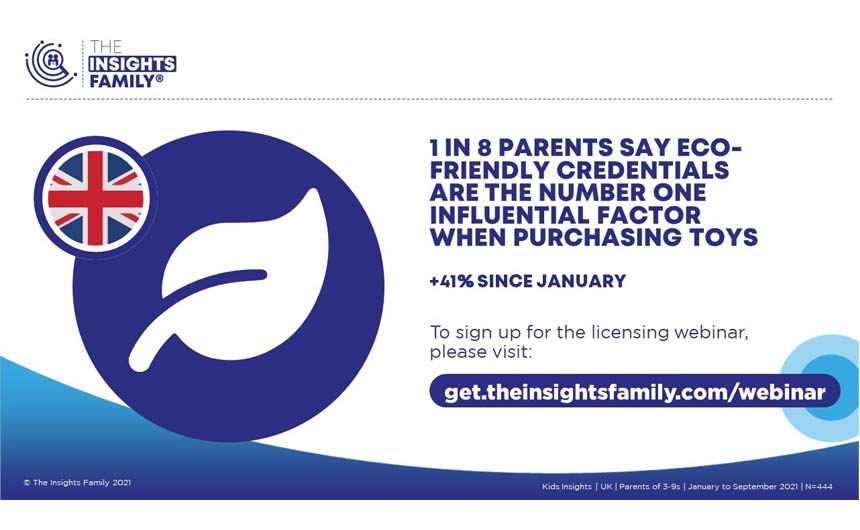The Insights Family reports on how there is a noticeable growing interest surrounding the environment and becoming eco-friendly from children and what this means for brands.
Across the UK, over half (53%) of all kids aged 3-12 say that they often think about how their actions effect the environment, with around 1 in 6 of these children saying they are more concerned about the environment and climate change than any other issue.
As these concerns are brought to the foreground of our daily lives, there is a noticeable growing interest surrounding the environment and becoming more eco-friendly.
But it’s not just tall talk either, the next generation of kids and parents are voting with their wallets to change purchase habits. They are willing to put their money where their mouth is.
Our data indicates that 42% of 6 to 12 year olds in the UK say that a product having eco-friendly credentials is an important factor when making shopping decisions. This has increased by 12% since the beginning of the year.
Additionally, 46% of kids in the same age bracket report that they would spend more on a brand or product that is environmentally friendly and sustainable.

Far from being passive observers, kids, tweens, and teens are changing their consumption habits to match their shifting attitudes.
Kids Insights data also suggests that the age at which kids begin to show concern for important global issues is getting younger too.
During the period between November 2019 and January 2020, 16-18s were the most likely age group to be concerned about the environment. However, one year later (November 2020 – January 2021), our data indicated that in fact 6-9s are most likely to show concern for the environment.
When it comes to parents, our Parents Insights data reveals that 53% of parents with kids aged 1-12 in the UK say they would spend more on something that is environmentally friendly and sustainable. This ranks as the second highest rate across Europe, only behind Italy.
Looking at toy purchases specifically, 1 in 8 UK parents with 3-9s say that a toy having eco-friendly credentials is the number one influential factor when making a purchase decision. Since January 2021, this trend has only grown stronger with the number of parents reporting this to be a major influence over their toy purchases increasing by 41%.
For toy brands, incorporating and building sustainability into their business will not only result in an increase in brand advocacy, but will also help them play their role in saving the planet.
The rise of rental
Do subscription and rental models offer a way to simultaneously drive sales and help save the planet?
Over the last few years, the subscription model has quickly risen in popularity among consumers, especially when it comes to TV and film services such as Netflix, Amazon Prime Video and Disney+. However, the subscription model has begun to penetrate new industries – with our data showing that over 1 in 10 UK parents would consider a subscription to a toy service.
LEGO has previously stated that it is “totally open” to the idea of renting out products. Meanwhile, other services, such as Whirli, allow parents to return and swap unwanted toys with their subscription. Brands could utilise a rental subscription service to simultaneously provide access to the latest licensed toy products, while also helping to reduce our overall impact on the environment.
Incorporating sustainability into long-term business strategies is vital. Consumers are starting to hold brands accountable for their actions and their impact on the environment, demanding transparency and responsibility when it comes to their plans on sustainability.
The conscious consumer is no longer a niche – they are becoming the mainstream.
According to our 2021 Kids & Family Industry Voice Report, 69% of toy companies believe they can make a difference in the sustainability sector.
Therefore, listening to your audience has never been more important. Children’s influence on their parents and purchase decisions is growing, and kids themselves are becoming more financially empowered every day.
Understanding what attitudes kids hold in real-time and how this affects their purchasing decisions is a critical advantage for brands.
This feature originally appeared in the autumn 2021 edition of Licensing Source Book. To read the full publication, click on this link.





























